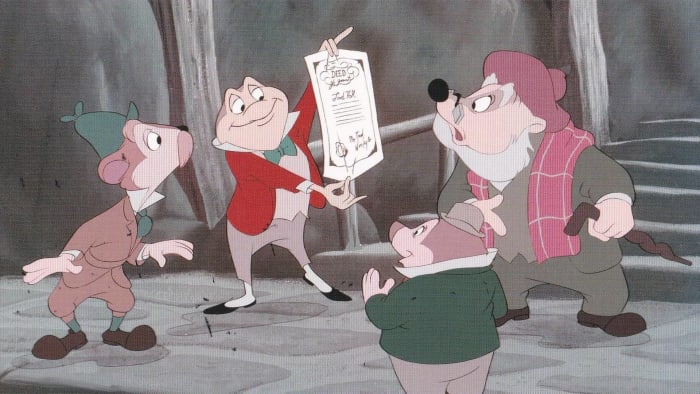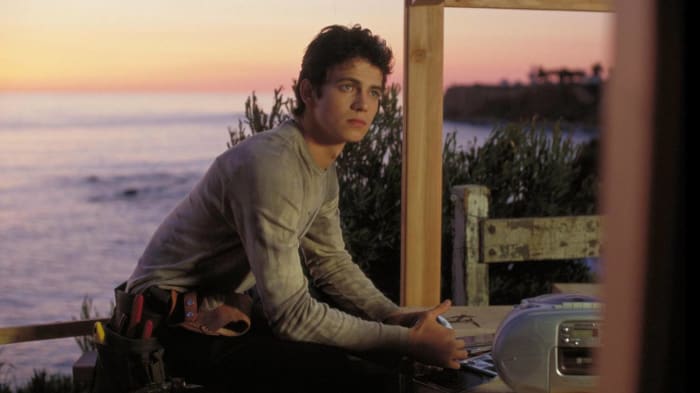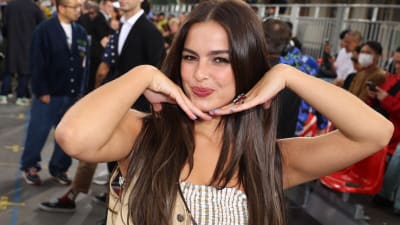- Home
- Quizzes
- My Quiz Activity
- Newsletters
- MY FAVORITES
- Add Sports/Teams
- SPORTS
-
NFL
- NFL Home
- Arizona Cardinals
- Atlanta Falcons
- Baltimore Ravens
- Buffalo Bills
- Carolina Panthers
- Chicago Bears
- Cincinnati Bengals
- Cleveland Browns
- Dallas Cowboys
- Denver Broncos
- Detroit Lions
- Green Bay Packers
- Houston Texans
- Indianapolis Colts
- Jacksonville Jaguars
- Kansas City Chiefs
- Las Vegas Raiders
- Los Angeles Chargers
- Los Angeles Rams
- Miami Dolphins
- Minnesota Vikings
- New England Patriots
- New Orleans Saints
- New York Jets
- New York Giants
- Philadelphia Eagles
- Pittsburgh Steelers
- San Francisco 49ers
- Seattle Seahawks
- Tampa Bay Buccaneers
- Tennessee Titans
- Washington Commanders
-
MLB
- MLB Home
- Athletics
- Arizona Diamondbacks
- Atlanta Braves
- Baltimore Orioles
- Boston Red Sox
- Chicago White Sox
- Chicago Cubs
- Cincinnati Reds
- Cleveland Guardians
- Colorado Rockies
- Detroit Tigers
- Houston Astros
- Kansas City Royals
- Los Angeles Angels
- Los Angeles Dodgers
- Miami Marlins
- Milwaukee Brewers
- Minnesota Twins
- New York Yankees
- New York Mets
- Philadelphia Phillies
- Pittsburgh Pirates
- San Diego Padres
- San Francisco Giants
- Seattle Mariners
- St. Louis Cardinals
- Tampa Bay Rays
- Texas Rangers
- Toronto Blue Jays
- Washington Nationals
-
NBA
- NBA Home
- Atlanta Hawks
- Boston Celtics
- Brooklyn Nets
- Charlotte Hornets
- Chicago Bulls
- Cleveland Cavaliers
- Dallas Mavericks
- Denver Nuggets
- Detroit Pistons
- Golden State Warriors
- Houston Rockets
- Indiana Pacers
- Los Angeles Clippers
- Los Angeles Lakers
- Memphis Grizzlies
- Miami Heat
- Milwaukee Bucks
- Minnesota Timberwolves
- New Orleans Pelicans
- New York Knicks
- Oklahoma City Thunder
- Orlando Magic
- Philadelphia 76ers
- Phoenix Suns
- Portland Trail Blazers
- Sacramento Kings
- San Antonio Spurs
- Toronto Raptors
- Utah Jazz
- Washington Wizards
-
NHL
- NHL Home
- Anaheim Ducks
- Boston Bruins
- Buffalo Sabres
- Calgary Flames
- Carolina Hurricanes
- Chicago Blackhawks
- Colorado Avalanche
- Columbus Blue Jackets
- Dallas Stars
- Detroit Red Wings
- Edmonton Oilers
- Florida Panthers
- Los Angeles Kings
- Minnesota Wild
- Montreal Canadiens
- Nashville Predators
- New Jersey Devils
- New York Islanders
- New York Rangers
- Ottawa Senators
- Philadelphia Flyers
- Pittsburgh Penguins
- San Jose Sharks
- Seattle Kraken
- St. Louis Blues
- Tampa Bay Lightning
- Toronto Maple Leafs
- Utah Mammoth
- Vancouver Canucks
- Vegas Golden Knights
- Washington Capitals
- Winnipeg Jets
- NCAAF
- NCAAM
- Olympics
- Boxing
- Entertainment
- Lifestyle
- Golf
- MMA
- Soccer
- Tennis
- Wrestling
- Sports Betting
- More Sports
- RESOURCES
- My Account
- YB on Facebook
- YB on Twitter
- YB on Flipboard
- Contact Us
- Privacy Policy
- Terms of Service

The 25 most WTF nominations in Golden Globe Awards history
Since its inception in 1944, the Golden Globe Awards have earned a reputation for, at best, unpredictability and, at worst, corruptibility. Both views are encouraged by the shadowiness of the organization that annually dishes out these honors: the Hollywood Foreign Press Association. Comprised of around 90 entertainment journalists of mostly international origin, the HFPA prides itself on throwing a great party (broadcast every year on NBC) and, with its two Best Picture categories (for Drama and Musical/Comedy), recognizing a broader array of cinematic excellence than the Academy Awards. While the Golden Globes reliably succeed at the former, their success at determining the latter is scattershot. Over the years, the organization has been accused of accepting bribes for nominations, and, in one notorious case, a shockingly undeserved win. With the nominees for the 2020 ceremony before us, let's take a look back at some of the Globes most puzzling nominees.
1950 - "The Adventures of Ichabod and Mr. Toad," Best Cinematography

The HFPA’s Best Cinematography award was all of three years old in 1950, and, judging from the first two winners, Jack Cardiff for “Black Narcissus” and Gabriel Figueroa for “La perla," it appeared the organization understood the craft quite well. Then the Globe was given to “The Adventures of Ichabod and Mr. Toad," an animated package film that features two functionally shot live-action introductions set in a library. This is like giving a Best Sound Design award to “Intolerance." The Cinematography category would come and go from year to year before getting permanently discontinued after the 1963 ceremony.
1965 - "Circus World," Best Song

In the year of “A Hard Day’s Night” and “Mary Poppins," the HFPA bestowed its Best Original Song award on this hilariously un-catchy song from the usually great Dimitri Tiomkin. Ned Washington’s lyrics are as lazy as those applied to John Williams’ “Star Wars” theme by Bill Murray’s lounge singer on “Saturday Night Live," while the film is disposable even by star John Wayne’s low 1960s standards. It’s an odd call all the way around.
1970 - "Paint Your Wagon," Best Musical or Comedy

The Hollywood musical was in steep decline in 1969, which should’ve been an argument for the HFPA to go heavier on comedies. Instead, Joshua Logan’s big-screen adaptation of the Broadway hit — best remembered/reviled today for Clint Eastwood and Lee Marvin’s calamitous failure to carry a tune — earned a surprise nomination despite scathingly negative reviews from critics. In the Globes’ defense, the film was an inexplicable box office success.
1971 - Melina Mercouri, Best Actress Drama for "Promise at Dawn"

No one adored Melina Mercouri more than her filmmaker husband, Jules Dassin — save for maybe the HFPA, which puzzlingly failed to nominate her for her finest performance (in 1960’s “Never on Sunday”) but had her back throughout the 1960s with questionable Best Actress nods for “Phaedra” and “Topkapi." Though badly miscast as author Romain Gary’s mother in Dassin’s “Promise at Dawn," the Globes rushed to her defense with an eyebrow-raising third Best Actress nomination while ignoring Jane Alexander’s breakout performance in “The Great White Hope."
1971 - Joe Namath, New Star of the Year Actor for "Norwood"

The HFPA’s New Star of the Year Award was always the sketchiest Golden Globes category, and this hilariously underserving nomination for NFL quarterback Joe Willy Namath probably should’ve been the end of it. This is not to say that Namath was a poor actor. The camera loved him, and he knew how to return its ardor — and he’s nothing if not photogenic as Glenn Campbell’s good-ol’-boy buddy in Jack Haley Jr.’s country music comedy, “Norwood." But any notion of big-screen stardom was snuffed out that same year with his painfully stiff performance in the godawful biker flick “C.C. and Company." His nomination was about adding a little razzle-dazzle to the ceremony and nothing else.
1972 - Dean Jones and Sandy Duncan, Best Actor and Actress Comedy or Musical for "The Million Dollar Duck"

These are a couple of vintage out-of-nowhere nominations from the HFPA. Dean Jones had been a perfectly affable leading man in numerous Disney hits throughout the 1960s (e.g. “That Darn Cat," “Blackbeard’s Ghost," “The Love Bug”), but no one outside of maybe the Jones household felt he’d been slighted by the major awards groups. The same was true of Duncan, though she’d received a GG nomination the prior year for Jerry Paris’ “Star Spangled Girl." In any event, it’s odd that the Golden Globes decided to nominate the duo for “The Million Dollar Duck," which was widely trounced by critics at the time of its release. This wasn’t a prestige movie, so it’s doubtful anyone was trying to buy their way into the ceremony.
1974 - Best Picture Drama for "Earthquake"

While the Academy Awards went for the semi-classy disaster film of 1974, “The Towering Inferno," the Golden Globes opted for the dim-witted Sensurround spectacle of Universal’s “Earthquake." While the Charlton Heston-led shake-fest was deserving of technical awards (the Oscars gave it Best Sound and a special achievement award for its visual effects), it had no business snagging a Best Picture Drama nomination over worthy contenders like “Lenny” or “Alice Doesn’t Live Here Anymore."
1977 - Truman Capote, New Star of the Year Actor for "Murder by Death"

The HFPA’s sketchiest category invited more ridicule than usual with this jokey nomination of celebrity author Truman Capote for his glorified cameo in Neil Simon’s delightful murder-mystery spoof. They also threw then 5-year-old Harvey Stephens a nod for his being a creepy-looking kid in “The Omen." The Globe wound up going to Arnold Schwarzenegger despite the mighty Austrian’s appearance in “Hercules in New York” six years prior.
1979 - "Lemon Popsicle," Best Foreign Film

Boaz Davidson’s raunchy coming-of-age comedy was a box office smash in its native Israel and was actually submitted as the country’s nominee for the Best Foreign Film Oscar. While the Academy unsurprisingly passed on the film notorious for a sequence in which its teenage characters stage a penis-measuring contest, the HFPA opted to place Davidson’s film in a class that included Bertrand Blier’s “Get Out Your Handkerchiefs” and the eventual winner, Ingmar Bergman’s “Autumn Sonata."
1982 - Pia Zadora, New Star of the Year Actress for "Butterfly"

The scandal that brought great shame to the Golden Globes feels awfully quaint in today’s ethically lax media world. Though the HFPA had long been dogged by accusations of favor-trading nominations, it had never done anything quite as brazen as this. It was bad enough that Pia Zadora’s multimillionaire husband wined and dined HFPA members at his Vegas casino and, later, his Beverly Hills mansion to finagle a New Star of the Year nomination (even though she’d made her debut in 1966’s “Santa Claus Conquers the Martians”). The real trouble started when critics saw the movie. “Butterfly” made multiple “Worst of” lists, and Zadora’s performance was singled out as the most risible element in the film. Then she won out over Kathleen Turner, whose femme fatale turn in “Body Heat” is considered one of the most spectacular debuts in film history. Smarting from criticism, the HFPA eliminated the category a year later.
1983 & 1985 - Dudley Moore, Best Original Score for "Six Weeks" & Best Actor Musical or Comedy for "Mickey & Maude"

Dudley Moore was a one-of-a-kind comedic talent who deserved every bit of praise heaped upon him for 1981’s smash hit “Arthur." Alas, his subsequent film work fell far short of the high standard he’d set for himself over the previous two decades, but the HFPA nevertheless treated Moore like he was still at the acme of his career until the mid-1980s. What’s more egregious: the Best Original Score nomination for the critically reviled weepie “Six Weeks” or a Best Actor win — over Eddie Murphy (“Beverly Hills Cop”), Bill Murray (“Ghostbusters”), Steve Martin (“All of Me”) and Robin Williams (“Moscow on the Hudson”) — for the woefully unfunny bigamy comedy “Micky & Maude?"
1984 - "Far from Over," Best Original Song

Frank Stallone’s finest hour as a composer is now most closely associated with its use in the classic, Christopher Guest-directed “Saturday Night Live” short featuring Harry Shearer and Martin Short as an ambitious synchronized swimming duo. But “Far from Over” should forever live in infamy as the training/rehearsal montage cue in Sylvester Stallone’s steroid-addled musical sequel to “Saturday Night Fever”: "Staying Alive." The HFPA could’ve nominated an extra song from “Yentl” or Michael Sembello’s “Maniac” from “Flashdance” but instead threw Sly’s fail-brother a hilariously undeserving Best Original Song nod.
1985 - Kim Basinger, Best Supporting Actress for "The Natural"

Basinger does precisely what she’s cast to do in Barry Levinson’s dumbed-down adaptation of Bernard Malamud’s novel: She’s a knockout as the femme fatale who threatens to derail Roy Hobbs’ (Robert Redford) improbable comeback. It’s the kind of badly underwritten part she’d soon transcend, but the HFPA jumped the gun with this nomination while ignoring superb supporting turns from Geraldine Page (“The Pope of Greenwich Village”) and Lindsay Crouse (“Places in the Heart”).
1986 - Joel Grey, Best Supporting Actor for "Remo Williams: The Adventure Begins"

Joel Grey garnered enthusiastic notices for disappearing under Carl Fullerton’s makeup in this attempted franchise launch, and the critics weren’t entirely wrong: He’s completely unrecognizable as the Asian martial arts guru Chiun. Unfortunately Grey is of Jewish descent, rendering this yellow-face performance a queasy echo of Mickey Rooney’s reviled turn in “Breakfast at Tiffany’s." The film — which is otherwise terrific — was a box office failure, which gave awards organizations an excuse to pass on a nomination, but the HFPA couldn’t help itself.
1987 - Jack Lemmon, Best Actor Musical or Comedy, "That's Life!"

The HFPA always had a soft spot for Blake Edwards, but the legendary director of "Breakfast at Tiffany's," "The Pink Panther" movies and "Victor/Victoria" was running on fumes creatively when he made this independently financed, horrendously self-indulgent comedy about a wealthy architect confronting his mortality as he turns 60. The entire film is labored, but it stands out among Edwards' late-career misfires due to this uncommonly off-key performance from one of the steadiest of movie stars. A nomination for "Buddy, Buddy" would've been more defensible.
1988 - "Nuts," Best Picture Drama

This labor of love from producer-star Barbra Streisand was supposed to be one of 1987’s major awards contenders, but it was DOA with the Academy, which couldn’t even spare a pity nomination for a new Streisand song. The HFPA, on the other hand, went gaga for the Martin Ritt-directed courtroom drama about an emotionally volatile prostitute charged with manslaughter, nominating not just the two leads (Streisand and Richard Dreyfuss) but also the poorly reviewed film itself for Best Picture. They had to expand the list of nominees to six to get it in there but still passed over John Boorman’s far more deserving “Hope and Glory”.
1993 - Billy Crystal, Best Actor, Musical or Comedy for "Mr. Saturday Night"

After logging several years as the host of the Academy Awards, Billy Crystal decided he’d like a few of those bald gold dudes for himself, so he directed, produced, co-wrote and starred in this strangely unfocused vanity project about the life of a fictional comedy legend. The movie bombed with audiences and, aside from David Paymer’s supporting performance, was panned by critics. Though the HFPA couldn’t quite muster the shamelessness to give “Mr. Saturday Night” a Best Picture Comedy nomination, it was more than happy to throw Crystal a Best Actor nod for donning unconvincing prosthetics in the pursuit of awards season glory. Meanwhile, we're still waiting for "Mr. Saturday Night 2."
1995 - "The Color of Night", Best Song

Jud Friedman was a hot songwriter in the 1990s thanks to his Academy Award-nominated “Run to You” from “The Bodyguard” soundtrack, so it’s hardly absurd that he’d wind up with a Golden Globes nod a few years later. That it’d be for the theme from Richard Rush’s reviled erotic thriller, “Color of Night," is a classic HFPA move. The song matches the intentionally overwrought tone of the movie (which has its lurid charms), but the singer, Lauren Christy, lacks the big-name sizzle the Globes usually go for (though she’s now a sought-after songwriter as a member of The Matrix). There’s no evidence of Pia-esque favor-trading here, which makes this nomination all the more bizarre.
1997 - Marion Ross, Best Supporting Actress for "The Evening Star"

Make a list of all-time prestige picture flops, and this misbegotten sequel to “Terms of Endearment” should be near the top. Based on the follow-up novel by Larry McMurtry, this Robert Harling written-directed fiasco is hideously strained camp; Shirley MacLaine and Miranda Richardson play every scene to the catty hilt, while Jack Nicholson’s late-film appearance serves only to remind the viewer just how dizzyingly steep of a drop-off this movie is from the original. No one expected any awards season love for this one, but the HFPA generously expanded its Supporting Actress category to six to accommodate Marion Ross.
2000 - Sharon Stone, Best Actress Musical or Comedy for "The Muse"

Albert Brooks’ dire comedy about a struggling screenwriter (Brooks) who recruits the help of a real-life muse (Sharon Stone) was dumped into theaters at the end of August 1999 and all but forgotten by the time awards season rolled around. But the HFPA, eager to add some red-carpet pizazz to its NBC-broadcast ceremony, made room for Stone in a star-studded Best Actress Comedy category that included Julia Roberts (“Notting Hill), Reese Witherspoon (“Election”) and Julianne Moore (“An Ideal Husband”).
2000 - Natalie Portman, Best Supporting Actress for "Anywhere But Here"

This Wayne Wang-directed adaptation of Mona Simpson’s bestselling novel had crazy prestige pedigree but landed with a thud at the 1999 Toronto Film Festival and, once it bombed at the box office, quickly vanished from memory. This didn’t stop the HFPA from once again expanding a category to bank some goodwill with a rising star’s reps (and to half-assedly acknowledge the year’s biggest movie, “Star Wars: Episode I – The Phantom Menace”).
2002 - Hayden Christensen, Best Supporting Actor for "Life as a House"

Irwin Winkler’s mawkish family drama featured standout performances from Kevin Kline, Kristin Scott Thomas, Mary Steenburgen and Jena Malone, but the HFPA only had eyes for Hayden Christensen, who appeared to be on the verge of stardom with “Star Wars: Episode II – Attack of the Clones” due out the following year. He’s perfectly fine in the movie, though his facility for playing a whiny character was an ill portent of things to come.
2005 - Scarlett Johansson, Best Actress Drama for "A Love Song for Bobby Long"

Johansson was double-nominated the previous year for Actress (“Girl with a Pearl Earring”) and Supporting Actress (“Lost in Translation”), which evidently emboldened the Globes to pretend her turn in the godawful “A Love Song for Bobby Long” was at all awards worthy. If the HFPA simply wanted star power, it could’ve easily swapped out Johansson for the far more deserving Annette Bening in “Being Julia." In the GGs’ defense, they recognized the greatness of Nicole Kidman in “Birth," which the Academy inexplicably passed up.
2011 - "Alice in Wonderland," "Burlesque," "Red" and "The Tourist" for Best Musical or Comedy

If you were crazy enough to rely on the Golden Globes nominees in this category to signify whether it was a good year for musicals or comedies, you might be led to believe this was the year both genres died. But even inoffensively amusing formula comedies like “Date Night” or “Easy A” would’ve been preferable to this drossy assortment. Lisa Cholodenko’s “The Kids Are All Right” was the rightful winner.
2019 - "The Lion King," Best Animated Film

Disney has spent the entire year mendaciously calling its “photorealistic, computer-generated” remake of “The Lion King a “live action” movie. What with the proliferation of de-aging technology and deep fakes, there will likely come a day when a film comprised entirely of photorealistic imagery is considered live-action. But the HFPA, in a rare display of good judgment, boldly refused to acquiesce to Disney’s aggressive demands. It’s rarely said, but… well done, Golden Globes.
Jeremy Smith is a freelance entertainment writer and the author of "George Clooney: Anatomy of an Actor". His second book, "When It Was Cool", is due out in 2021.
More must-reads:
Breaking News
Trending in Entertainment
Customize Your Newsletter
 +
+
Get the latest news and rumors, customized to your favorite sports and teams. Emailed daily. Always free!
PRIVACY POLICY EDITORIAL POLICY CONTACT US
ABOUT YARDBARKER TERMS OF SERVICE
Use of this website (including any and all parts and
components) constitutes your acceptance of these
Terms of Service and Privacy Policy.
This site is for entertainment purposes only.
There is no gambling offered on this site.
Gambling Problem? Call 1-800-Gambler.








